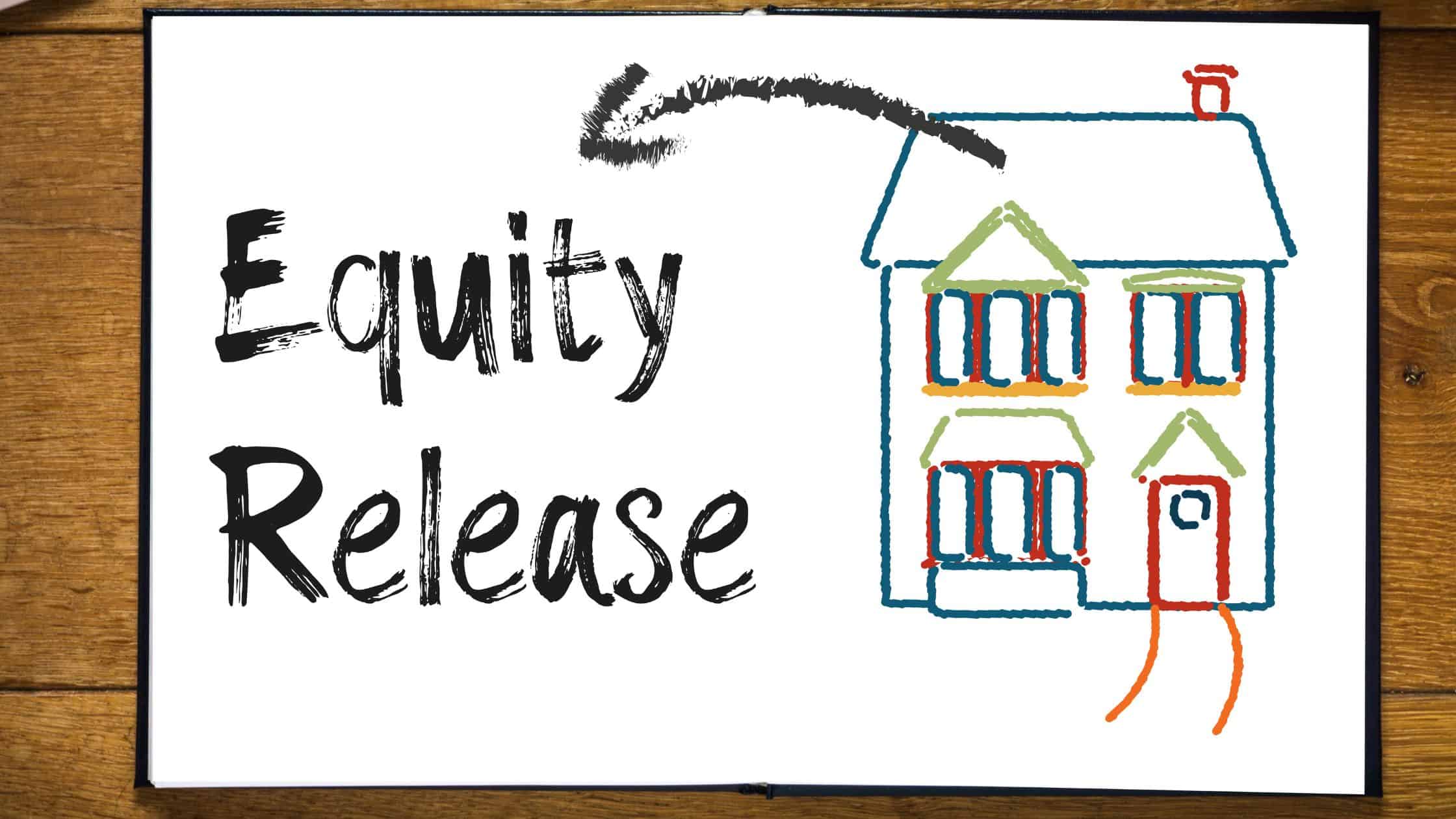At Jones and Young, our free Equity Release Calculator is designed to help you quickly estimate the amount you could borrow. It simplifies the decision-making process when considering equity release.

Understanding Equity Release
Equity release allows homeowners to access a portion of their property’s value, as cash. This can be done through a loan against your home or by selling a part of it while still being able to live there.
How Can I Calculate Equity Release?
Calculating equity release involves assessing the value of your home and deducting any mortgage or loans secured against it. The remaining amount represents your equity, which can be released partially. Equity release brokers, like us at Jones & Young, provide calculators that take into account factors such as your age, property value and existing mortgage to give you an estimate of the release amount.
Equity Calculator Coming Soon
Jones and Young: Leading Equity Release Advisors
Here at Jones and Young, we’re experts in providing tailored equity release solutions. Our deep understanding and expertise in this area enable us to secure the most advantageous offers from equity release product providers, considering your financial needs and goals.
We are your equity release adviser with access to a broad spectrum of lenders, including those focusing on unique client circumstances. We assess your property value and eligibility, offering competitive quotes based on your situation.
Our services go beyond mere advice; we offer comprehensive support throughout your equity release journey. This includes handling all necessary documentation and personal details and simplifying complex application procedures, ensuring a smooth and stress-free process. Whether you have credit challenges, are self-employed, or are a company director, we are here to help.
Contact us today, and let us guide you towards the best equity release options for your needs.
What Are The Benefits Of A Lifetime Mortgage?
Equity release offers a solution for homeowners wishing to unlock the value of their property. Here are some common reasons why individuals opt for equity release;
Tax-Free Cash
One significant benefit of a lifetime mortgage is accessing an amount of tax-free cash from your home’s equity. This can prove advantageous during retirement when it comes to funding home improvements, supporting family members or enhancing one’s lifestyle.
Home Ownership
With a lifetime mortgage, you retain home ownership, allowing you to continue living in it indefinitely or until long-term care becomes necessary. This provides stability and peace of mind.
Flexible Repayments
These mortgages provide various repayment options. Some plans allow voluntary repayments to manage the interest rate and equity release loan size. In contrast, others require no repayments until the property is sold, usually upon passing away or entering long-term care.
Debt Protection
Lifetime mortgages come with a ‘no equity guarantee’, ensuring you will never owe more than your home’s worth. This protection safeguards both you and your beneficiaries from being burdened with debts that surpass the value of your property. It is even possible to release money from the home and protect a portion of the property in order to leave behind to beneficiaries.
Lifetime Mortgage Products: What You Need to Know
Lifetime mortgage products are a common way of releasing equity. With these, you borrow money secured against your home while retaining ownership. Typically, no monthly payments are required; instead, the mortgage balance and any compound interest are repaid from the sale of your home when you pass away or move into long-term care. Nowadays a vast majority of plans allow you to make payments towards the mortgage on a voluntary basis allowing you to manage the balance as you feel able.
The Benefits of a Cash Lump Sum
One major advantage of releasing equity is receiving a tax-free cash lump sum. This can be used for various purposes, like home improvements, travel, or supporting family members. However, it’s important to consider how this may impact means-tested benefits, since additional income could affect eligibility.
Considerations and Costs of Equity Release
Understanding all costs associated with equity release is crucial before making decisions.
The expenses usually involved in this process consist of setup fees, which cover the tasks required to arrange the loan well, and legal fees necessary for the legal work involved in processing the equity release. Additionally, valuation fees may be charged to assess the value of your property.
One important factor contributing to these costs is the interest that accumulates over the duration of the loan. This interest is typically compounded, meaning it adds up and is calculated based on the growing balance over time. Compound interest can significantly increase the mortgage balance because even the interest itself earns more interest.
Considering the interest rates and their long-term impact is crucial as they compound. This effect implies that if no regular payments are made to offset the interest. Then, over time, your debt can considerably grow. Therefore, when considering equity release options, it’s essential to understand the expenses, how compound interest can affect your long-term financial situation, and if you would choose to mitigate that impact.
Talk To Our Experts About A Lifetime Mortgage!

What Does Having Equity in Your Home Mean?
Equity in your home represents the portion of your property you have fully paid off and own outright. It’s calculated as the difference between the current market value of your home and any outstanding debts secured against it, such as a mortgage.
As you progressively pay down your mortgage, or if the market value of your property increases due to market trends or home improvements, your equity in the property grows. This growing equity becomes a valuable financial resource, particularly for retirees. For many, it is a vital means to supplement retirement income, fund home renovations, support family members financially, or even buffer unexpected expenses.
What Is An Equity Mortgage?
An equity mortgage, or an equity release mortgage, is specifically designed for homeowners. It enables them to unlock the value of their homes without having to sell or leave the property. Unlike mortgages, equity-release mortgages generally do not require repayments.
Instead, the loan amount and the accumulated interest are paid back when the homeowner either passes away or moves into long-term care. This type of mortgage is particularly appealing to individuals who have equity in their home and want to utilise this capital to enhance their retirement lifestyle, cover healthcare expenses or provide assistance to family members.
Am I Eligible For Equity Release?
Eligibility for equity release primarily depends on factors such as your age, the value of your property and the equity you have in it. Typically, applicants must be 55 years old and own a property in the UK to qualify.
The property you own must meet criteria set by the lender, which often includes a valuation (usually around £70,000 or more). The amount of equity that can be released also varies depending on factors such as your age or life expectancy.
Factors related to health and lifestyle, such as existing conditions, can sometimes impact the amount you can release. Specific lenders may offer enhanced terms for individuals with shorter life expectancies. Understanding these criteria is essential when determining if equity release aligns with your needs and goals.

Equity Release FAQs:
We’ve compiled answers to some frequently asked questions about equity release for your convenience;
How Do They Calculate Equity Release?
Equity release calculations are based on factors like the value of your home and any outstanding mortgage or debts secured against it. Providers consider your age and property value when determining how much equity you can release.
The amount of money you can access through equity release often increases as you get older and your property’s value increases. Some providers also consider factors like your health and lifestyle, which could increase your amount.
How Much Will I Pay Back With Equity Release?
The repayment amount for an equity release plan depends on the type of plan you choose and the applicable interest rates. It includes the amount released plus the accumulated interest over time. Since interest is compounded, the final repayment amount can be significantly higher than the lump sum. Typically, this debt is repaid from the proceeds of selling your property when you pass away or move into long-term care.
How Much Equity Can I Release With A Lifetime Mortgage?
The amount of equity you can release with a lifetime mortgage typically depends on factors such as your age, the value of your property, and the specific terms of the mortgage lender.
In general, as you grow older and if your property holds value, more equity will likely be accessible to you. On average, individuals can access between 20% to 50% of their home value, although this percentage can vary.
It’s essential to consider using an equity release calculator or seeking guidance from an advisor to get an accurate estimate tailored specifically to your situation.
What Does The Equity Release Council Do?
The Equity Release Council is a UK industry body that sets standards for equity release providers to ensure consumer protection. They ensure that all member firms adhere to their principles, which include a no negative equity guarantee, the right to remain in your property for life, and clear, fair, and complete presentations of their plans. The council also lobbies for the interests of consumers and works to promote safe equity release products in and regulated by the financial industry.
What Is A Joint Lifetime Mortgage?
A joint lifetime mortgage is a program designed for couples who want to unlock the value of their home. It takes into account both partner’s ages and health conditions when determining how much equity can be released.
Under this arrangement, both partners can remain in their homes until they have passed away or moved into long-term care. Afterwards, the loan and accumulated interest become repayable. This type of mortgage is particularly suitable for couples who desire flexibility during retirement without downsizing. It ensures that both parties are equally included and protected in the agreement.






